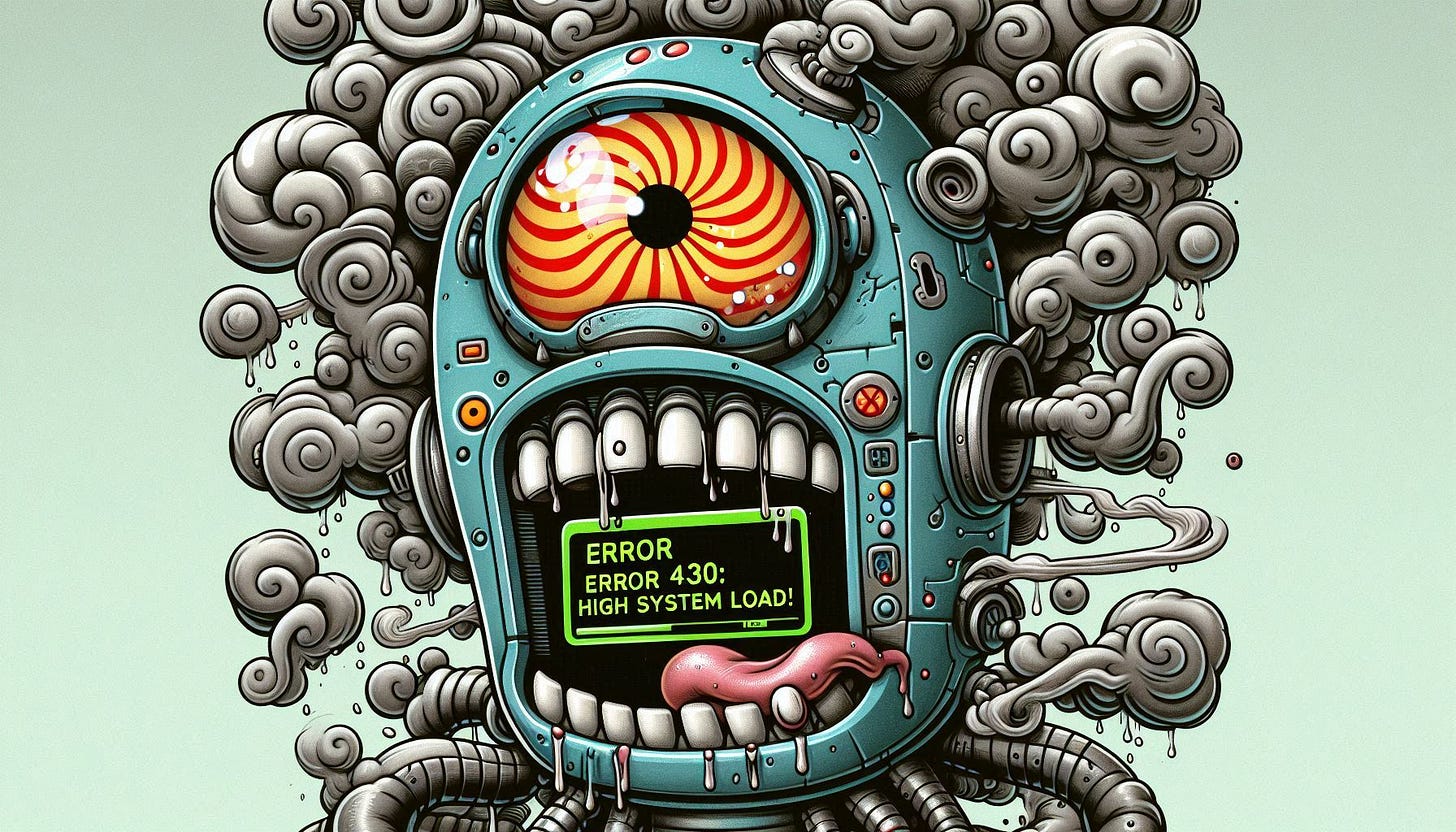Sunday Rundown #63: AI-Powered Discovery & a (T)error Bot
Sunday Bonus #23: Parsing multiple sources with NotebookLM.
My first workshop: Intro to Midjourney
I am excited to announce my first-ever live workshop for paid subscribers, hosted by of . Join us on August 30 at 11 AM PST.
If you’re a paid subscriber to Why Try AI, see event details here.
If you’re a paid subscriber to Artificial Ignorance, see event details here.
Happy Sunday, friends!
Welcome back to the weekly look at generative AI that covers the following:
Sunday Rundown (free): this week’s AI news + an AI fail for your entertainment.
Sunday Bonus (paid): a goodie for my paid subscribers.
Let’s get to it.
🗞️ AI news
Here are this week’s AI developments.
👩💻 AI releases
New stuff you can try right now:
Amazon Music launched an AI-powered Topics feature that helps you discover new podcasts related to a topic. (Only for US customers so far.)
ChatGPT Free users can now generate 2 images per day with DALL-E 3. (Or you can use bing.com/create or Microsoft Designer to make more.)
Google announced a bunch of developer-focused updates including a major price drop on Gemini 1.5 Flash in API, expansion of model input/output to 100+ languages, and more.
Mistral AI released an early version of what it calls “Agents” that let you add any preset context and instructions to chats, very similar to Custom GPTs.
OpenAI introduced Structured Outputs to its API, which means developers can now provide JSON Schema that model outputs will match 100% of the time.
Runway now lets you use an input image as the last frame of a video clip, recreating what happens up to that moment.
Twitter / X has a new Ask Grok feature that lets you highlight and ask its AI chatbot about any part of a post.
WordPress now has a built-in Write Brief with AI tool that helps you evaluate and streamline your writing (kind of like Grammarly or the Hemingway App).
🔬 AI research
Cool stuff you might get to try one day:
Audible is testing a new AI-powered search tool called Maven that lets you discover audiobooks using natural language. (Being tested with 50% of US users.)
Reddit is going to test AI-generated summaries on search results pages.
YouTube plans to incorporate Google’s Gemini model into its YouTube Studio to help creators brainstorm video ideas as well as titles, thumbnails, etc.
📖 AI resources
Helpful stuff that teaches you about AI:
AI Python for Beginners - a four-part, beginner-friendly course series on leveraging Python and AI by Andrew Ng.
Enabling a Data-Driven Workforce [VIDEO] - practical examples from OpenAI for using ChatGPT Enterprise at work.
GPT-4o System Card - a deep-dive by OpenAI into all the safety work that went into GPT-4o before its release (e.g. red teaming).
Meta FAIR: AI Demos - a few cool AI tools from Meta AI for you to play around with.
The Adoption of ChatGPT - a visual breakdown of insights on ChatGPT adoption based on a survey of 100,000 workers by The University Of Chicago.
What do people really ask chatbots? - a look at the most popular AI chat topics by The Washington Post.
🔀 AI random
Other notable AI stories of the week:
“Google Hires Character.ai Cofounders and Licenses Its Models.”
Three more senior people leave OpenAI, including co-founder and president Greg Brockman, who is taking an extended sabbatical.
🤦♂️ AI fail of the week
This isn’t the cute stoner robot I was looking for. (Final version.)
Anything to share?
Sadly, Substack doesn’t allow free subscribers to comment on posts with paid sections, but I am always open to your feedback. You can message me here:
💰 Sunday Bonus #23: Compare sources and extract consensus using NotebookLM
Do you know what the problem with science is?
There’s way too much research out there!
On any topic imaginable, you’ll find multiple studies with different methodologies, hypotheses, and outcomes.
How can you possibly learn what they all say?
Read every one of them?! Please!
Well, you already know I’m a fan of Google’s NotebookLM as a research tool.
So today I’ll showcase a process and a suggested prompt to help you compare multiple sources and extract consensus (if any) with NotebookLM.
Note: It should go without saying that you can’t rely exclusively on LLM output, especially for topics you’re not personally familiar with. Hallucinations haven’t gone anywhere, and you should always double-check any consequential facts.




